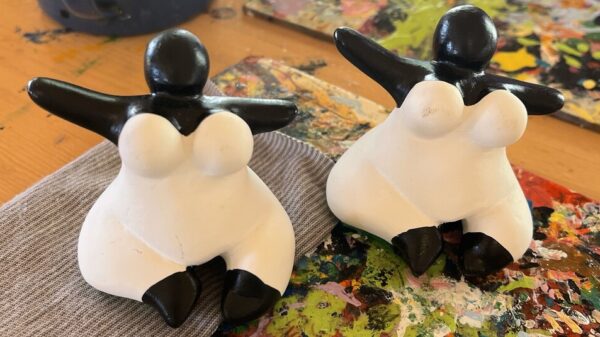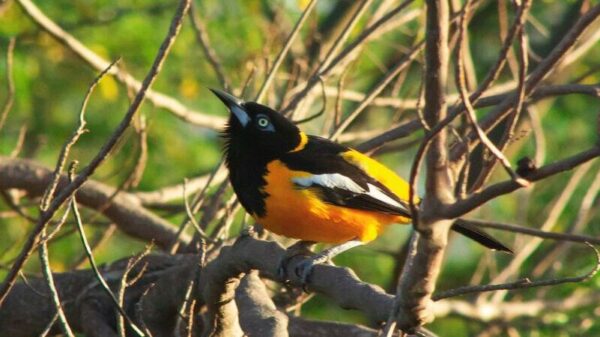Generally, you can expect more mosquitoes in the winter than in the summer in Curaçao. The good news: Curaçao is considered malaria-free. Nevertheless, reliable protection against these pesky little creatures is indispensable. This is also because mosquitoes can transmit other diseases.
Below, we provide you with helpful tips on how to protect yourself from mosquitoes in Curaçao, for whom special protection is recommended, and which vaccinations you should not omit.
This page contains affiliate links marked with an asterisk (*). If you decide to make a purchase after clicking on a link, we may receive a commission at no additional cost to you.
How Can I Protect Myself From Mosquitoes in Curaçao Throughout the Year?
A proven way to effectively protect yourself against mosquitoes and mosquitos is to use insect repellent sprays. In Curaçao, due to the risk of contracting Dengue fever or Zika virus through mosquito bites, the WHO recommends using repellents containing the active ingredient DEET. Depending on the concentration of the active ingredient, the duration of protection from mosquitoes varies.
You can generally follow these guidelines:
- Insect repellent with a DEET concentration of 20% provides protection for one to three hours.
- Repellent with a DEET concentration of 30% keeps you protected for up to six hours.
- A high DEET concentration of 50% offers reliable protection for up to twelve hours.
The lower the DEET concentration in your repellent, the more frequently you need to reapply it.
A effective alternative might be insect repellents containing Icaridin if DEET products are not suitable for you, for example, due to allergies.
Due to their lesser protective effect, repellents with essential oils as active ingredients are not recommended for Curaçao.
In addition to regularly applying insect repellent, it is also advisable to wear long clothing, especially at dusk. If your accommodation has not already done so, we also recommend hanging mosquito nets over the bed to protect yourself from mosquitoes.
Where in Curaçao Are Mosquitoes Especially Common?
While you are likely to encounter fewer mosquitoes at the beach, they are much more common around standing waters. In addition to using skin-applied repellents, wearing suitable clothing can also keep mosquitoes at bay. Since mosquitoes are attracted to dark colors, it is advisable to wear light-colored clothing.
Explore paradise – with complete flexibility!
When Are Mosquitoes Particularly Prevalent in Curaçao?
As mentioned earlier, mosquitoes are especially prevalent in winter in Curaçao. However, the number of mosquitoes in winter also largely depends on the time of day: while there are virtually no mosquitoes during the day, the situation is quite different at dusk in the evening and morning.
At night, too, the activity of mosquitoes is very high. Therefore, it is highly recommended to keep doors and windows, especially of living rooms and bedrooms, always closed. Most vacation rentals, apartments, and hotel rooms are equipped with air conditioning, making it comfortable to stay inside even without open windows.
What Can I Do Against an Insect Bite?
Even the best protection can’t prevent every mosquito bite. If you do get bitten, there are several remedies that can provide relief.
- If you have a cooling pack* available in your holiday accommodation, it’s a good idea to use it.
- Cooling compresses* are very useful on the go.
- Insect bite healers* can reduce itching and swelling.
- Cooling gels* and anti-itch skin creams* with cortisone should also be in your travel medicine kit to effectively treat mosquito bites.
Sometimes the temptation to scratch at an insect bite is great. If the bite is open and thus a wound has occurred, it is sensible to treat the area with a wound disinfection spray*. Ideally, however, you should avoid scratching the itchy bites from the start.
What Vaccinations Do I Need for My Stay in Curaçao?
Before your trip to Curaçao, it is generally advisable to check your vaccination status for completeness and currency. It is sensible to have the most important standard vaccinations, including:
- Diphtheria,
- Tetanus,
- Measles
- and Pertussis.
A vaccination against Hepatitis A is also recommended for travel to the Dutch Antilles, which include Curaçao.
In certain circumstances, it may also be advisable to get vaccinated against
- Dengue fever,
- Typhus
- and Rabies
especially for travelers who are at an increased risk of contracting these diseases. Therefore, consulting a tropical medicine specialist before your trip is definitely sensible.
Get ready for unforgettable adventures in paradise!
Conclusion: You Can Effectively Protect Yourself From Mosquitoes in Curaçao
Although you are likely to encounter mosquitoes in Curaçao, there are numerous measures available to protect yourself. Carefully select effective insect repellents and apply them at regular intervals to maintain protection. By ensuring you wear light-colored clothing, you also reduce the risk of being bitten by mosquitoes. We hope our recommendations enable you to enjoy a pleasant holiday on this Caribbean island, free from mosquito bites.
What Medicines Should Not Be Missing from My Travel First-aid Kit?
So that you can take care of minor wounds yourself and act quickly in medical emergencies, a well-stocked travel first-aid kit should not be missing on your holiday in Curaçao.
Even if certain medications are not available in the vacation country, with your travel first-aid kit, you can ensure that you can rely on them if necessary. Below we have compiled a clear list for you to refer to when assembling your travel first-aid kit.
➤ Ibuprofen* or Paracetamol*, for treating headaches, toothaches, body aches, and fever.
➤ Pain-numbing lozenges* for treating sore throats (air conditioning in the Caribbean can be tricky).
➤ Nasal spray* for reducing nasal mucosa swelling.
➤ Prospan cough liquid* for treating coughs and loosening mucus.
➤ Imodium akut* for treating diarrhea.
➤ Hand sanitizing gel* and disinfectant wipes*.
➤ Disposable gloves* for hygienic wound treatment.
➤ Digital fever thermometer* for determining body temperature.
➤ Adhesive bandages* for protecting minor wounds.
➤ Cooling Fenistil gel* for relieving the itching from sunburns and insect bites.
➤ Vomex tablets* against nausea and vomiting.
➤ Skin-friendly insect repellent spray* for straightforward application.
➤ Sunscreen* with a high SPF.











